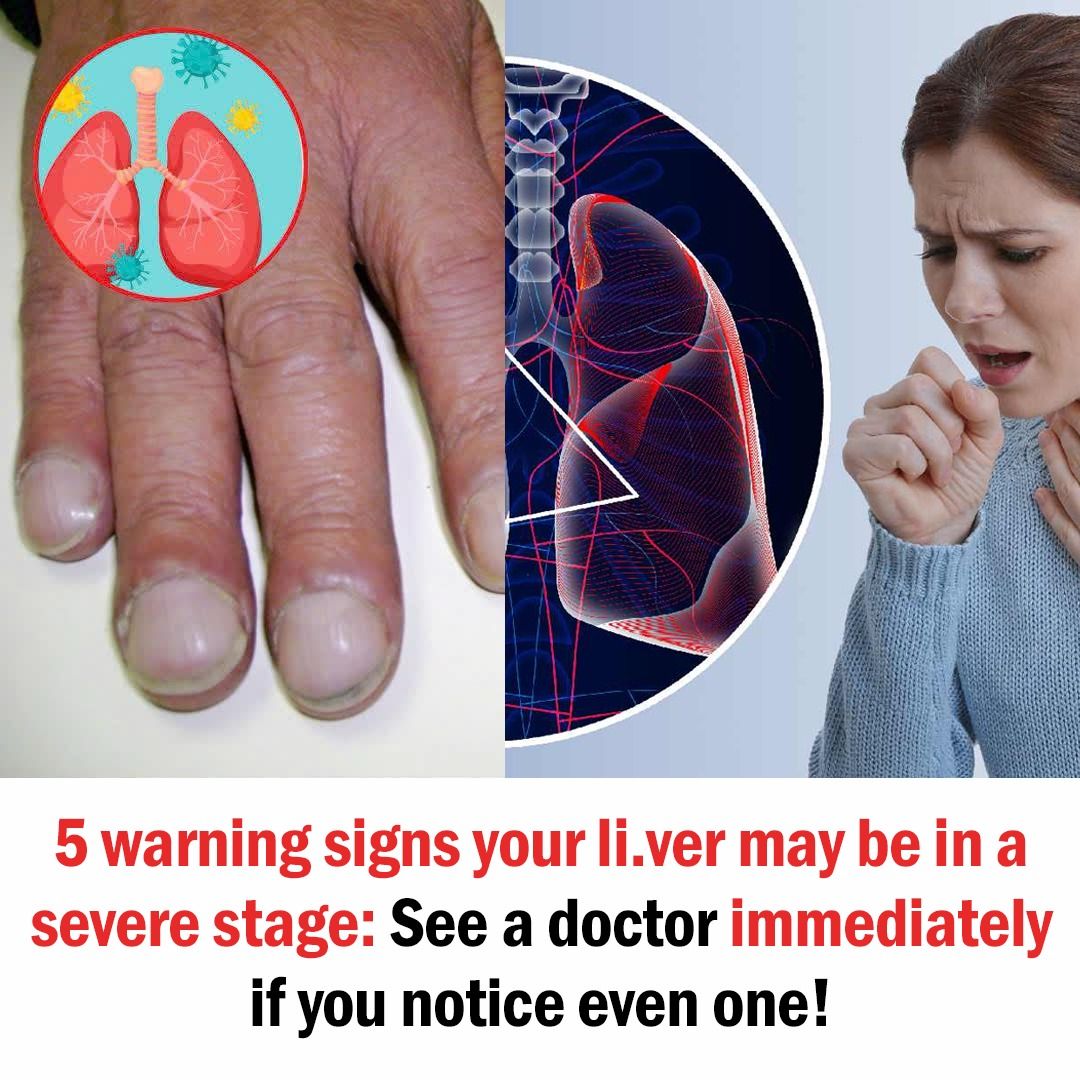You should know this

Your liver is a silent warrior — filtering toxins, aiding digestion, and regulating essential functions. But when it begins to fail, the signs may be subtle at first, then suddenly serious. If you notice even one of these red flags, it’s crucial to seek medical help immediately.
1. Yellowing of Skin or Eyes (Jaundice)
What it means:
This yellow discoloration is a classic sign of liver dysfunction, caused by a buildup of bilirubin — a waste product the liver can no longer process efficiently.
🛑 Why it’s dangerous:
Jaundice often indicates severe liver damage, such as cirrhosis or advanced hepatitis.
2. Swollen Abdomen or Legs (Ascites or Edema)
What it means:
A tight, bloated belly or swollen ankles/legs may signal fluid retention — a serious complication of liver failure.
🛑 Why it’s dangerous:
It could be due to portal hypertension or a failing liver struggling to produce proteins like albumin.
3. Easy Bruising or Bleeding
What it means:
Your liver produces clotting factors. If it’s damaged, you may bruise easily, experience frequent nosebleeds, or notice bleeding gums.
🛑 Why it’s dangerous:
This may be a sign of advanced liver disease, where your blood can no longer clot properly — increasing risk of internal bleeding.
4. Frequent or Persistent Hiccups
What it means:
Hiccups that occur frequently or don’t go away may seem harmless — but in some cases, they can signal irritation of the diaphragm or surrounding organs, including an enlarged or inflamed liver.
🛑 Why it’s dangerous:
Persistent hiccups have been linked to advanced liver disease, liver cancer, or ascites, where the pressure inside your abdomen affects the diaphragm.
5. Dark Urine and Pale Stools
What it means:
Dark-colored urine and light, clay-colored stools signal a problem in bile flow — which can result from serious liver or bile duct issues.
🛑 Why it’s dangerous:
These are common in obstructive liver diseases like cholestasis or liver cancer.
If you experience any of the above symptoms — even just one — do not delay. Liver disease can escalate quickly, and early intervention could save your life.